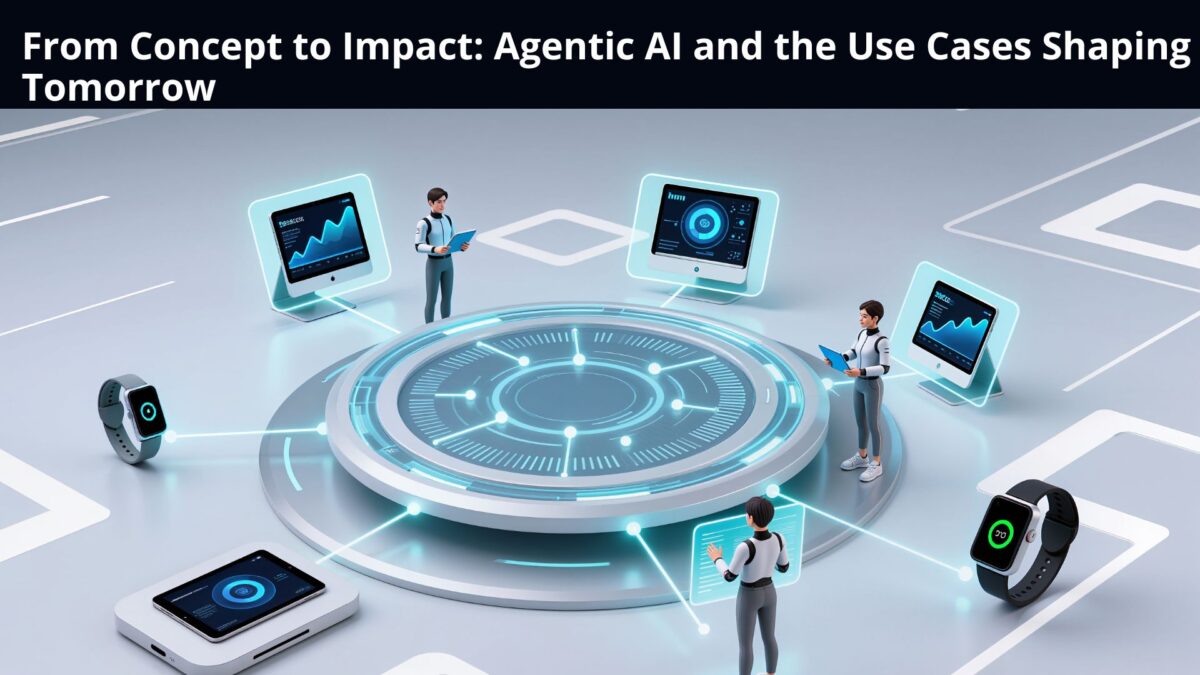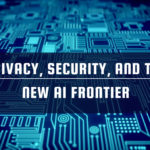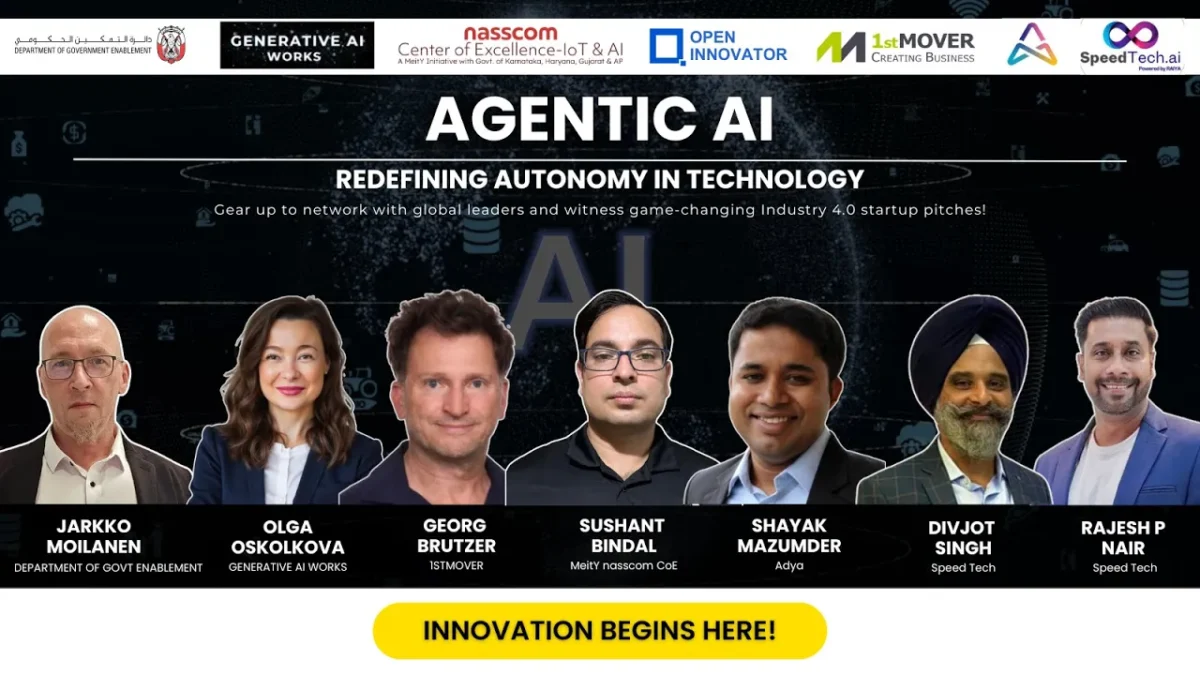Agentic AI is transforming businesses by introducing intelligence and autonomy into routine systems. Agentic AI is perfect for complicated and dynamic contexts because it can reason, plan, and adapt on its own, unlike traditional tools that wait for instructions. Its new applications in robotics, healthcare, and commercial operations are opening up new possibilities for productivity and creativity.
In contrast to standard AI systems that merely react to commands, Agentic AI is capable of independent reasoning, planning, execution, and adaptation. This implies that it can manage intricate, multi-step activities without continual human supervision. It is being used in a variety of industries to enhance decision-making, simplify processes, and increase productivity.
Agentic AI is proving to be very successful in dynamic contexts where conditions change rapidly by fusing sophisticated reasoning with real-time adaptability. These systems are starting to be used by companies, healthcare providers, and digital entrepreneurs to increase productivity, cut expenses, and improve customer and societal outcomes.
Business and Operations Efficiency
Agentic AI is changing how businesses run their day-to-day operations. By doing away with manual handoffs, which frequently cause processes to lag, it simplifies workflows. Research indicates that automating repetitive processes with agentic AI can increase productivity significantly. Additionally, it helps businesses save money and save waste by optimizing resource allocation through real-time data analysis and operational adjustments. Agentic AI in sales can score leads, tailor outreach, and even modify pricing tactics. Shorter sales cycles and conversion rates have resulted from these skills. Agentic AI lowers inventory costs and increases delivery reliability by monitoring suppliers, negotiating contracts, and rerouting shipments during disruptions, all of which help supply chain management.
Healthcare Advancements
Another sector where agentic AI is having a significant impact is healthcare. Wearable technology makes it possible to monitor patients continuously, sending out notifications and taking action when their health deteriorates. This proactive strategy enhances patient safety and enables physicians to react more quickly. By combining genetic and clinical data, agentic AI also facilitates individualized therapy planning, which is particularly helpful in uncommon diseases and oncology. Results greatly increase when treatments are customized for each patient. Agentic AI is being used by hospitals to handle personnel scheduling, supply logistics, and resource allocation. This lowers operating expenses while guaranteeing the availability of vital resources when required. All things considered, agentic AI is assisting healthcare systems in providing more effective, individualized, and economical care.
Robotics in Manufacturing
Agentic AI is driving a new generation of robots in the automotive and manufacturing sectors. These robots can design, learn, and self-improve through autonomous learning cycles; they are not restricted to preprogrammed tasks. This lowers the cost of prototypes and speeds up invention, enabling businesses to launch goods more quickly. Robots powered by agentic AI may adjust to changing production needs without requiring significant reprogramming, increasing the flexibility and resilience of factories. They can also find inefficiencies and provide recommendations for changes by examining production data. This degree of autonomy is transforming industrial automation, making it possible for smarter factories to react more quickly and precisely to shifting demands and difficulties in the global supply chain.
Healthcare Robotics
Healthcare robots is also being revolutionized by agentic AI. Agentic AI-powered robots are performing precision, less invasive procedures that shorten recovery times and enhance patient outcomes. These systems are safer and more efficient since they can adjust during procedures. Healthcare robots help with patient care outside of surgery, from assisting with rehabilitation activities to keeping an eye on vital signs. Their capacity to adapt and learn guarantees that patients receive individualized care that is suited to their need. Reduced staff workloads help hospitals by freeing up physicians and nurses to concentrate on more difficult duties. Healthcare professionals are attaining greater levels of care and efficiency in medical settings by fusing robots with agentic AI.
Autonomous Vehicles and Service Robots
Autonomous cars and service robots are largely powered by agentic AI. These systems need to function in uncertain contexts, and agentic AI allows them to adjust instantly. For instance, autonomous vehicles are able to react to unforeseen dangers, reroute during traffic, and adapt to traffic circumstances. Agentic AI is used by service robots in sectors like retail and hospitality to communicate with clients, respond to inquiries, and carry out duties securely. Over time, these robots get better at what they do by constantly learning from their environment. Agentic AI’s flexibility guarantees that autonomous systems continue to be dependable and efficient, improving consumer happiness and safety in real-world applications.
Customer Support and HR Functions
Agentic AI is changing customer service and human resources outside of technical areas. It can answer questions, fix problems, and even escalate complicated situations when needed in customer support. As a result, customers are happier and wait times are decreased. Agentic AI in HR streamlines processes such as interview scheduling, employee onboarding, and routine inquiry management. HR staff may concentrate on important projects like talent development and employee engagement by taking up monotonous tasks. By relieving professionals of repetitive chores and enabling them to focus on higher-value work, these applications demonstrate how agentic AI is not just increasing productivity but also improving the human experience.
Education and Personalized Learning
Another area that benefits from agentic AI is education. Agentic AI-powered intelligent tutoring programs adjust to the pace and learning preferences of individual students. They guarantee that students receive the assistance they require to achieve by offering individualized instruction, tasks, and feedback. In large classrooms where teachers might find it difficult to provide individualized attention, this strategy is particularly helpful. Additionally, agentic AI can pinpoint areas in which students are having difficulty and modify the curriculum accordingly. It keeps students interested and enhances academic results by providing individualized learning opportunities. Agentic AI is developing into a potent tool for individualized and inclusive learning as educational systems around the world embrace digital revolution.
Energy Management and Sustainability
In terms of sustainability and energy management, agentic AI is essential. Because of their complexity, modern power grids need to be constantly monitored and adjusted. By forecasting demand, balancing supply, and guaranteeing effective distribution, agentic AI systems maximize grid performance. Additionally, they facilitate predictive maintenance by spotting any problems before they produce problems. This increases dependability and decreases downtime. By controlling supply variations, agentic AI in renewable energy helps integrate solar and wind electricity into the system. Agentic AI helps achieve sustainability goals by lowering waste and facilitating the global shift to greener, more efficient energy solutions by making energy systems smarter and more adaptable.
The Future of Agentic AI
By facilitating intelligent, independent decision-making and execution, agentic AI is revolutionizing a number of sectors. Its applications are numerous and expanding, ranging from robotics, education, and energy management to business operations and healthcare. Agentic AI is particularly well-suited to dynamic contexts where standard automation is inadequate because of its capacity for reasoning, planning, and adaptation. Businesses using these technologies are experiencing increased output, reduced expenses, and better results. Agentic AI will probably become a key component of innovation as technology develops further, propelling advancements across industries and influencing a future in which robots collaborate with people to solve challenging problems and open up new avenues for advancement.
Quotients is a platform for industry, innovators, and investors to build a competetive edge in this age of disruption. We work with our partners to meet this challenge of metamorphic shift that is taking place in the world of technology and businesses by focusing on key organisational quotients. Reach out to us at open-innovator@quotients.com.








